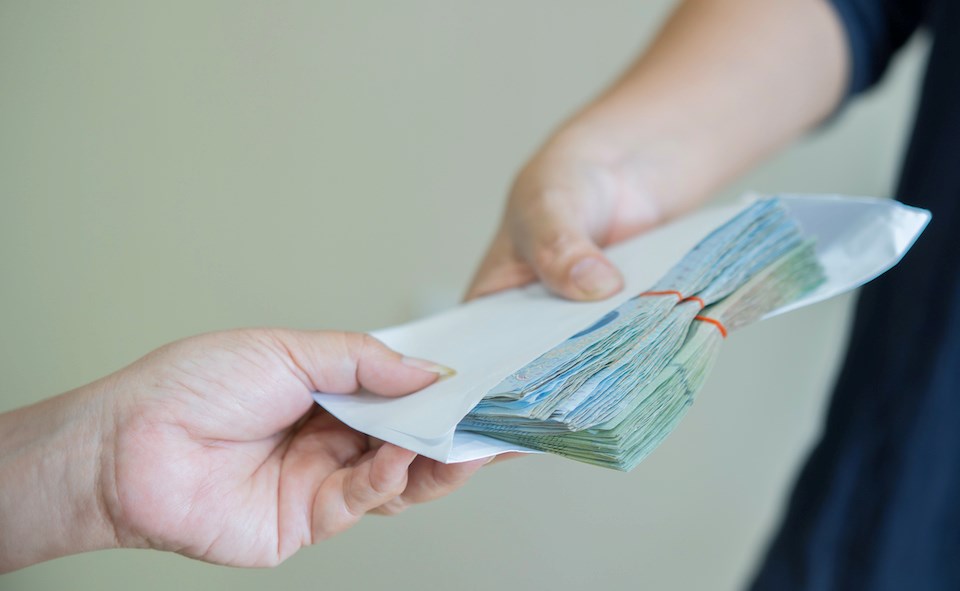Landlords planning to increase a tenant's rent must follow a specific guideline - but many renters agree to illegal price hikes because they aren't aware of the rules.
The Residential Tenancy Branch (RTB) oversees disputes between landlords and tenants concerning illegal rent increases, and other renter concerns such as major pest infestations or when your landlord may enter your unit.
Rob Patterson, a lawyer with the Tenant Resource and Advisory Centre (TRAC), says landlords may also try to get tenants to pay more without raising the rent.
When the province froze rent increases during the pandemic, some B.C. landlords found creative ways to collect additional money from tenants without illegally raising the rent.
"What we saw a lot of times was landlords saying, 'We're not increasing your rent, but you have this agreement with us for parking [and] we're going to say that it is separate from your tenancy agreement,'" he told V.I.A. in a previous interview.
While the cases must be evaluated individually, Patterson notes that this was one "sneaky" way property owners could make things difficult. Another way they may do this is by charging for laundry services or overcharging for utilities.
How often is my landlord allowed to raise my rent?
A landlord in British Columbia may issue a rental increase once every 12 months but not in the first year of the tenancy.
Before they issue the rental increase, landlords must provide tenants with three months' notice on the approved Notice of Rent Increase form.
For example, if a landlord issues the rent on February 1, the increase doesn't legally begin until June 1. This is because the month the increase is issued isn't factored into the three-month notice.
Landlords must use the appropriate form for a lawful rent increase. In other words, a text message doesn't suffice.
In a January 2024 decision, the RTB ruled that a landlord's rental increases were illegal because they were issued to the tenant via a WhatsApp conversation. They also failed to provide three months' notice and issued the increase during the pandemic rent freeze.
How much can my landlord raise my rent each year?
The amount the landlord may increase a tenant's rent varies each year.
In 2024, a B.C. landlord may increase a tenant's rent by 3.5 per cent in most circumstances.
Can my landlord ever increase my rent above the allowable limit?
There are three "exceptional" circumstances when a landlord may apply to the RTB to raise the rent above the maximum limit for expenses. Those instances are when:
- the landlord has incurred a financial loss from an extraordinary increase in the operating expenses of the residential property;
- the landlord, acting reasonably, has incurred a financial loss for the financing costs of purchasing the residential property, if the financing costs could not have been foreseen under reasonable circumstances;
- the landlord, as a tenant, has received an additional rent increase for the same rental unit.
Landlords must pay $300 to file with the RTB to increase the rent, plus $10 for each rental unit, to a maximum of $600.
Tenants will be served a package with information about the increase; they may speak at the rental increase's RTB hearing and submit evidence challenging it.
For more modest increases, including necessary repairs or improvements, a landlord may apply for a rent increase for capital improvements.
What can I do if I have overpaid my rent due to an illegal rent increase?
Tenants issued an illegal rent increase have a couple of options.
They can either subtract the overpayment from their next month’s rent or they may file a claim through the RTB. There is a filing fee for claims through the RTB but they can get this fee back if they win the case.
If a tenant elects to subtract money from their next month's rent, they must tell their landlord that they have the right to do this, according to section 43 of the Residential Tenancy Act (RTA).
TRAC provides a template for tenants that they can print and use, which includes a note about the law and other pertinent information.




